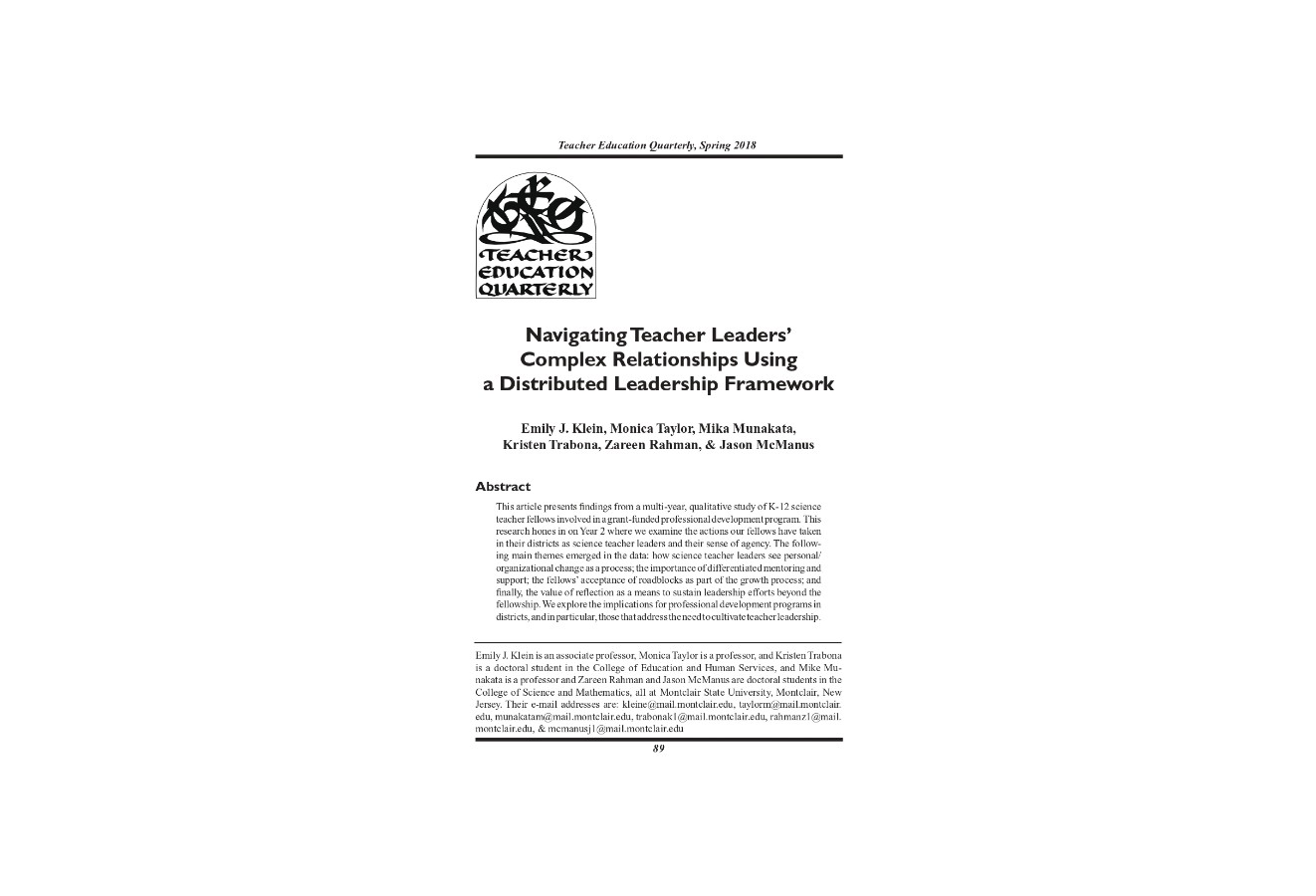
Teacher leadership happens amid a complex context of policy, content, students, peers, and administrators, and its enactment remains far messier than the literature has revealed. Despite a call by York-Barr and Duke (2004) for more theory-driven, empirical research, teacher leadership remains a largely undertheorized field (Wenner & Campbell, 2017), and there is still a need to understand the supports necessary to enact teacher leadership. For one, most professional development programs do little to support teacher leadership or to prepare teachers to spread their innovative practices beyond their own classrooms. Teachers are often driven by district and policy agendas and led by so-called outside experts who may not understand the classroom context Cochran-Smith & Lytle, 2009; Lieberman & Miller, 2011). In addition to professional development programs’ misalignment between purpose and delivery, the largely hierarchical school structure impedes teachers’ potential for leadership. Professional development and school culture are intrinsically linked; a clearer understanding of the complexities of the contexts affecting teacher leadership can inform professional development programs that prepare teacher leaders. This article illuminates the relationships and contexts that serve as key factors in teacher leaders’ work. It presents findings from Year 2 of a multiyear, qualitative study of K–12 science teachers (fellows) involved in a grant-funded program. The Wipro Science Education Fellowship (SEF) program was developed by the University of Massachusetts, Boston (Center of Science and Mathematics in Context, 2017) and aimed to foster sustainable change in districts by supporting emergent teacher leadership as fellows analyzed their teaching (in Year 1) and developed teacher leadership plans (in Year 2). The fellows participated in the program for up to 3 years and were supported by university-based directors of the program and school district coordinators. In Year 1, fellows’ activities were largely determined by the program’s structured protocols; in Year 2, fellows worked independently and delved deeply into their inquiries and expanded their spheres of influence as they pursued a teacher leadership project and led professional development workshops. In doing so, they encountered the realities of engaging in work with multiple stakeholders and navigating those relationships in a thorny policy context.
